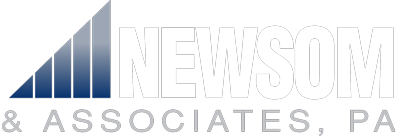If all the general conditions are met, the deduction can be claimed for a rental real estate activity – but only if the activity rises to the level of being a trade or business. An activity is generally considered to be a trade or business if it is regular, continuous, and considerable.
Because determining whether a rental real estate enterprise meets those criteria can be difficult, the IRS has provided a safe harbor under which such an enterprise will be treated as a trade or business for purposes of the QBI deduction if certain conditions are met. For this purpose, a rental real estate enterprise is defined as an interest in real property held for the production of rents and may consist of an interest in multiple properties. Commercial and residential real estate may not be part of the same enterprise.
Under the safe harbor, a rental real estate enterprise will be treated as a trade or business if the following requirements are satisfied during the tax year with respect to the rental real estate enterprise:
- Separate books and records are maintained to reflect income and expenses for each rental real estate enterprise.
- 250 or more hours of rental services are performed per year with respect to the rental enterprise. Note that these hours of service do not have to be performed by you personally.
- The taxpayer maintains contemporaneous records, including time reports, logs, or similar documents, regarding the following: (i) hours of all services performed; (ii) description of all services performed; (iii) dates on which such services were performed; and (iv) who performed the services. Such records are to be made available for inspection at the request of the IRS. The contemporaneous records requirement does not apply to the 2018 tax year.
For purposes of the safe harbor, rental services include:
-
- advertising to rent or lease the real estate;
- negotiating and executing leases;
- verifying information contained in prospective tenant applications;
- collection of rent;
- daily operation, maintenance, and repair of the property;
- management of the real estate;
- purchase of materials; and
- supervision of employees and independent contractors.
Some types of rental real estate are not eligible for the safe harbor. Real estate used by the taxpayer (including an owner or beneficiary of passthrough entity) as a residence for any part of the year is generally not eligible for the safe harbor. Nor is real estate rented or leased under a triple net lease.
Please call us to discuss the rental real estate safe harbor.
